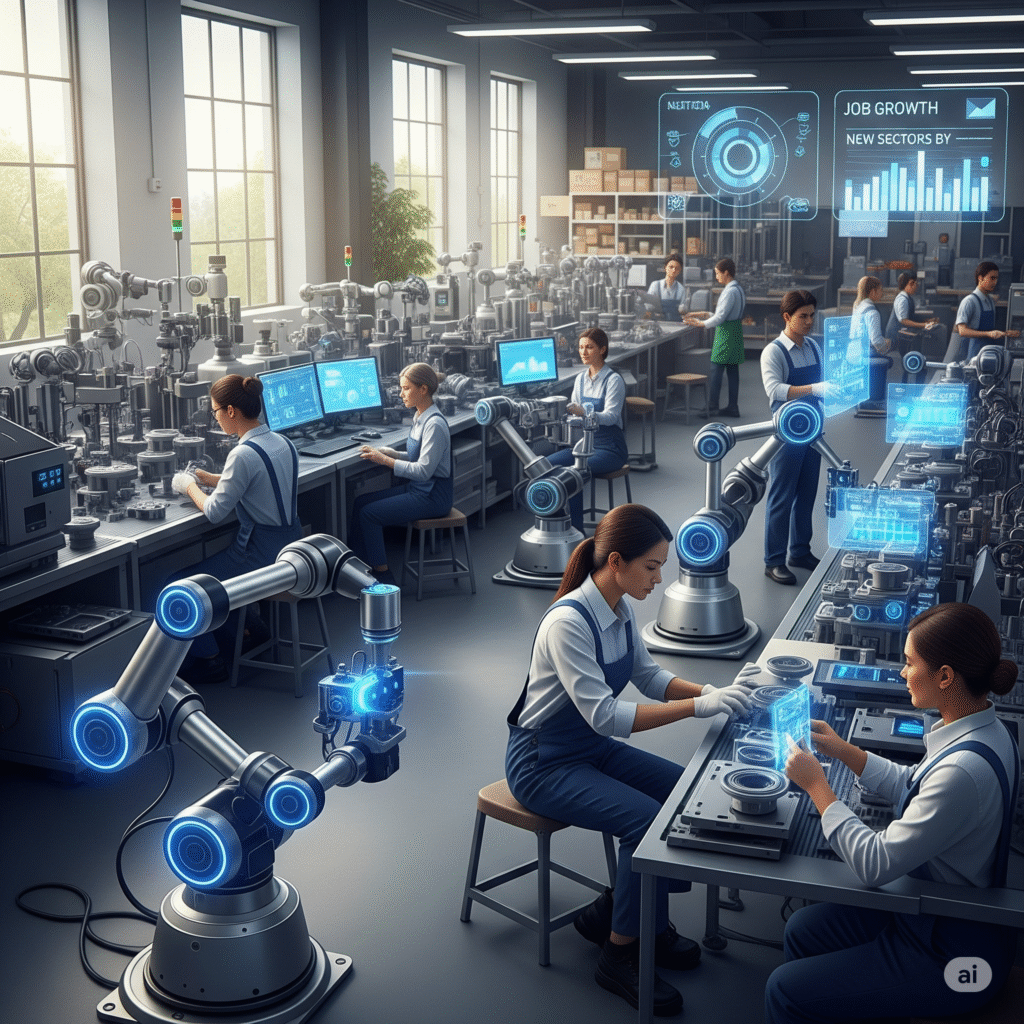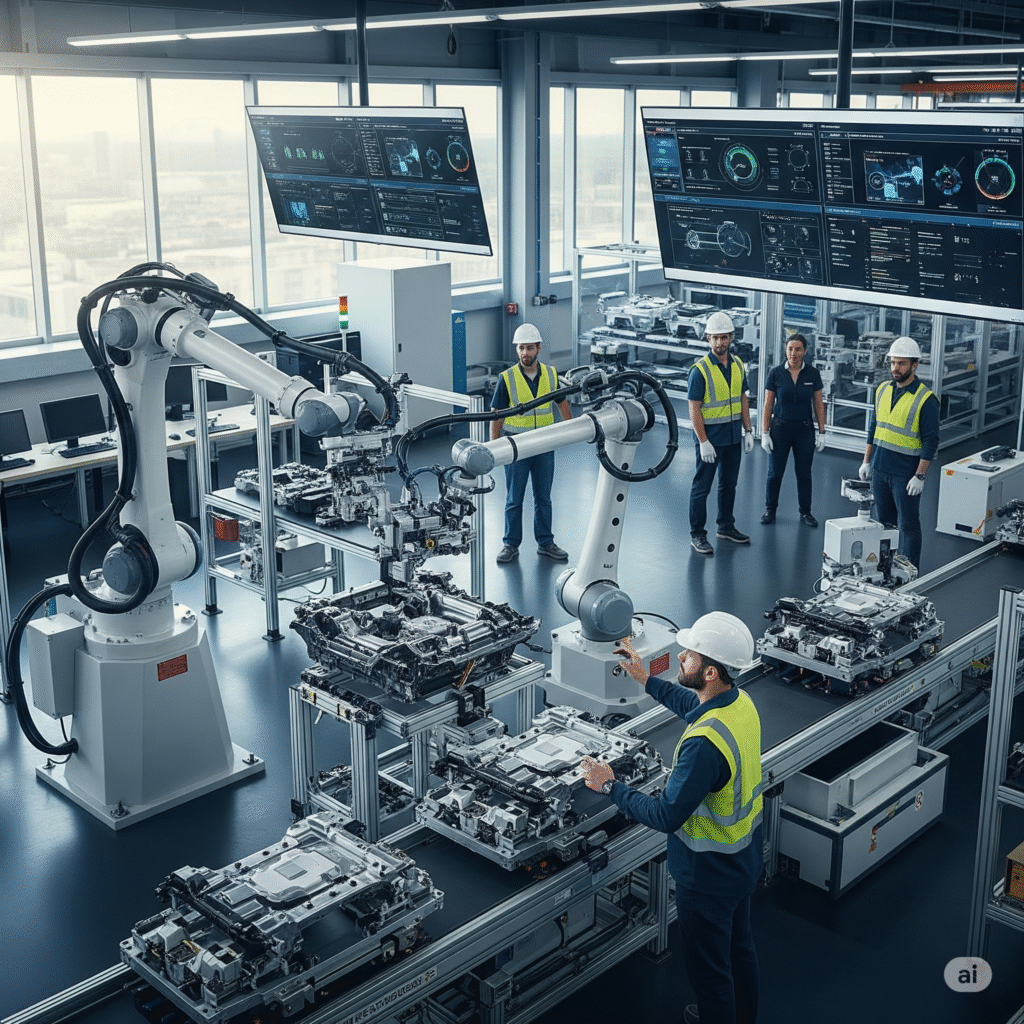
Every leap in technology has sparked the same fear: Will this take my job? Robotics and automation are no different—except for the speed and scale at which they’re transforming industries. But here’s the real truth: automation rarely eliminates entire jobs. Instead, it reshapes them by removing repetitive tasks while amplifying the value of human strengths such as creativity, judgment, and empathy.
This blog explores whether automation will replace humans, which jobs are most exposed, and how you can future-proof your career in the age of robotics.
What Automation Actually Does (and Doesn’t) Replace
Automation excels in predictable, repetitive, and rule-based tasks. This includes activities like:
- Data transcription
- Report generation
- Assembly-line tasks
- Routine quality checks
But it struggles with ambiguous, creative, and relationship-driven work such as:
- Negotiations and conflict resolution
- Strategic planning
- Creative design
- Emotional intelligence and counseling
Key takeaway: Automation replaces tasks, not entire jobs.
Jobs Most Exposed vs. Jobs Most Defensible
Higher Exposure
- Data entry clerks
- Routine accounting roles
- Telemarketers
- Basic manufacturing assembly
- Warehouse picking
Mixed Exposure (Augmented Roles)
- Radiologists using AI for scans
- Financial analysts with AI forecasting tools
- Legal researchers using automation for case reviews
- Marketing analysts
- Software testers
Lower Exposure (Human-Centered Roles)
- Business strategists
- Product managers
- Therapists and counselors
- Creative directors
- Teachers and coaches
These roles depend on complex human skills that robotics cannot replicate.

How Robotics Is Changing the Workplace
- From jobs to tasks – Companies redesign roles into smaller tasks, some for humans, some for machines.
- From headcount to output – Focus shifts from number of employees to productivity and efficiency.
- Hybrid teams – Human workers collaborate directly with cobots and AI copilots.
- Adaptability over experience – Employers prioritize continuous learning.
- Ethics by design – Companies must integrate safety, fairness, and accountability into automation.
A Practical 12-Month Plan to Future-Proof Your Career
Quarter 1: Audit & Anticipate
- List your top 20 recurring tasks.
- Mark which can be automated.
- Talk with robotics engineers to understand trends.
Quarter 2: Skill Up Fast
- Learn Python basics or low-code automation.
- Build data literacy and process mapping.
- Improve negotiation and storytelling skills.
Quarter 3: Pilot & Portfolio
- Run a small automation project.
- Track before-and-after results.
- Build a portfolio with ROI-focused case studies.
Quarter 4: Scale & Lead
- Standardize the pilot project.
- Train colleagues on automation workflows.
- Position yourself as a leader of automation adoption.
Human Advantages to Double Down On
- Sense-making: seeing patterns, prioritizing, and connecting dots.
- Creativity: designing, innovating, and ideating beyond data.
- Relationships: mentoring, coaching, and building trust.
- Accountability: owning decisions when models fail.
These skills remain irreplaceable in the age of robotics.
E-E-A-T in Action
- Experience: Insights built on real-world automation projects and measurable results.
- Expertise: References to standard practices like cobots, predictive maintenance, and human-in-the-loop systems.
- Authoritativeness: Backed by labor market studies showing task redistribution, not wholesale job loss.
- Trustworthiness: Practical, pilot-tested steps with clear risk management and ethical considerations.
Here’s are a Table for Safest Job:-
Jobs at Risk vs Jobs Future-Proof
FAQs
Will automation replace humans entirely?
No. Automation replaces repetitive tasks, not full jobs. Humans remain essential in roles requiring creativity, judgment, and empathy.
Which jobs are most exposed to automation?
Repetitive, rules-based work such as data entry, telemarketing, and warehouse picking face the highest exposure.
How can I future-proof my career?
Learn automation-friendly skills (Python, data literacy, low-code tools) and double down on soft skills like negotiation and creativity.
What industries will adopt robots fastest?
Manufacturing, logistics, healthcare diagnostics, and agriculture are leading the way.
What human skills remain valuable?
Creativity, critical thinking, empathy, and relationship-building will continue to define successful careers.
Conclusion: The Future Belongs to the Human + Machine Workforce
Automation is not the end of human work—it’s the redesign of work. The real winners will be those who learn how to collaborate with robots and AI, not compete with them. By investing in future-proof skills and leading automation projects, you can turn robotics into your career advantage, not a threat.
Call-to-Action
Want to future-proof your career starting today? Begin with a 2-week task audit. Identify one process to automate, measure the results, and showcase your impact. Small pilots become career-defining case studies.
- “According to the World Economic Forum’s Future of Jobs Report, nearly half of workers will need reskilling by 2027.”
- “MIT researchers also highlight human-in-the-loop automation as the real path forward.”




